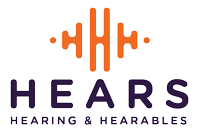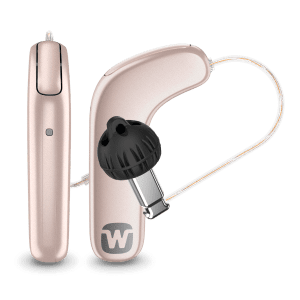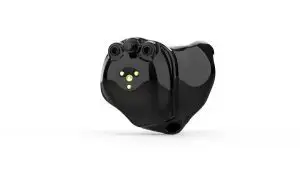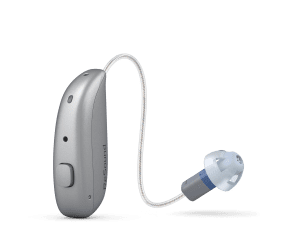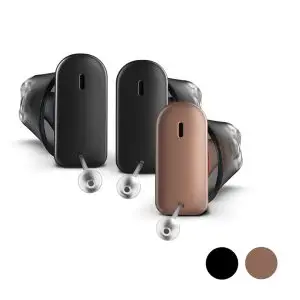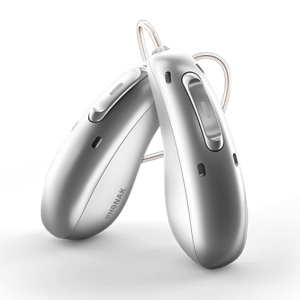Understanding the Essentials: What to Know When Buying Hearing Aids
Hearing loss is a common yet often overlooked aspect of health that affects millions of individuals worldwide. With advancements in technology, hearing aids have become an invaluable solution for those experiencing hearing impairment. However, purchasing a hearing aid involves careful consideration and understanding of various factors to ensure optimal functionality and satisfaction. In this essay, we delve into the essentials of buying a hearing aid. Offering insights and guidance for individuals navigating this significant decision so you know what to know when buying hearing aids.
Understanding Hearing Loss:
Before delving into the intricacies of purchasing a hearing aid, it is crucial to understand the nature of hearing loss. Hearing loss can vary in severity, ranging from mild to profound. It may be caused by factors such as aging, exposure to loud noise, genetic predisposition, or underlying medical conditions. Moreover, the type and configuration of hearing loss can significantly influence the choice of hearing aid and its effectiveness. Therefore, consulting an audiologist for a comprehensive hearing evaluation is the first step towards addressing hearing impairment.
Seeking Professional Guidance from a Hearing Care Provider:
The expertise of an audiologist is invaluable in the process of purchasing a hearing aid. Audiologists are trained professionals specializing in the assessment and management of hearing disorders. They conduct thorough evaluations to determine the extent and type of hearing loss, provide personalized recommendations, and assist individuals in selecting the most suitable hearing aid based on their specific needs and preferences. Moreover, audiologists offer essential guidance on proper usage, maintenance, and adjustment of hearing aids, ensuring optimal outcomes and user satisfaction.
Choosing the Right Hearing Aid:
Selecting the right hearing aid involves consideration of several factors, including technology, style, features, and budget. Modern hearing aids are equipped with advanced digital technology, offering various features such as noise reduction, directional microphones, telecoil compatibility, and Bluetooth connectivity. The choice between behind-the-ear (BTE), in-the-ear (ITE), or completely-in-the-canal (CIC) styles depends on factors such as comfort, visibility, and degree of hearing loss. Additionally, individuals may opt for rechargeable hearing aids for convenience or explore accessories like remote controls or smartphone apps for enhanced functionality.
Understanding Hearing Aid Features and the Benefit to you:
When purchasing a hearing aid, it is essential to understand the significance of different features and how they contribute to improved hearing and overall user experiences and benefits. Noise reduction technology helps minimize background noise, making speech more intelligible in various environments.
Directional microphones focus on sounds in front while reducing noise from other directions, enhancing speech clarity in noisy settings. Telecoil functionality enables compatibility with hearing loop systems commonly found in theaters, churches, and public venues, facilitating better hearing during group activities. Bluetooth connectivity allows seamless integration with smartphones, TVs, and other devices, enabling streaming of audio directly to the hearing aids for enhanced communication and entertainment.
Considerations for Comfort and Fit:
Comfort and fit are paramount considerations when choosing a hearing aid, as they significantly impact usability and satisfaction. Proper fitting ensures optimal performance and prevents discomfort or irritation during prolonged wear. Custom-molded hearing aids offer a personalized fit that conforms to the contours of the ear, providing comfort and stability. Moreover, individuals should consider factors such as size, weight, and ergonomic design to ensure the hearing aid is discreet and easy to handle. Regular follow-up appointments with the audiologist allow for adjustments to be made to the fit and programming of the hearing aid, ensuring continued comfort and optimal performance.
Financial Considerations and Insurance Coverage:
The cost of hearing aids can vary significantly depending on factors such as brand, technology, features, and accessories. While hearing aids may represent a substantial investment, they offer invaluable benefits in terms of improved communication, quality of life, and overall well-being. Some insurance plans may provide coverage for hearing aids, while others may offer reimbursement or financing options. Additionally, government programs, nonprofit organizations, and hearing aid manufacturers may offer assistance or discounts for individuals with limited financial resources. It is essential to explore all available options and consider the long-term value and benefits of investing in quality hearing care.
Embark on Your Hearing Aid Journey at Hears to U Audiology Clinic
At Hears to U Audiology Clinic, we understand that purchasing a hearing aid is a significant decision. Our easy-to-start demo process and expert guidance ensure you make informed choices tailored to your needs. Discover how investing in your hearing health can enhance communication, social engagement, and overall well-being.
